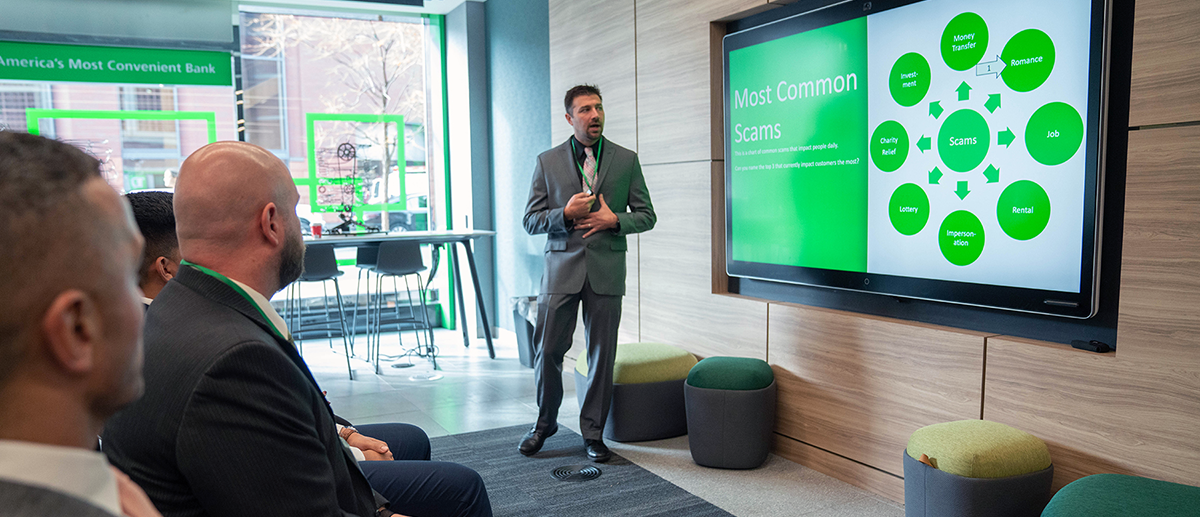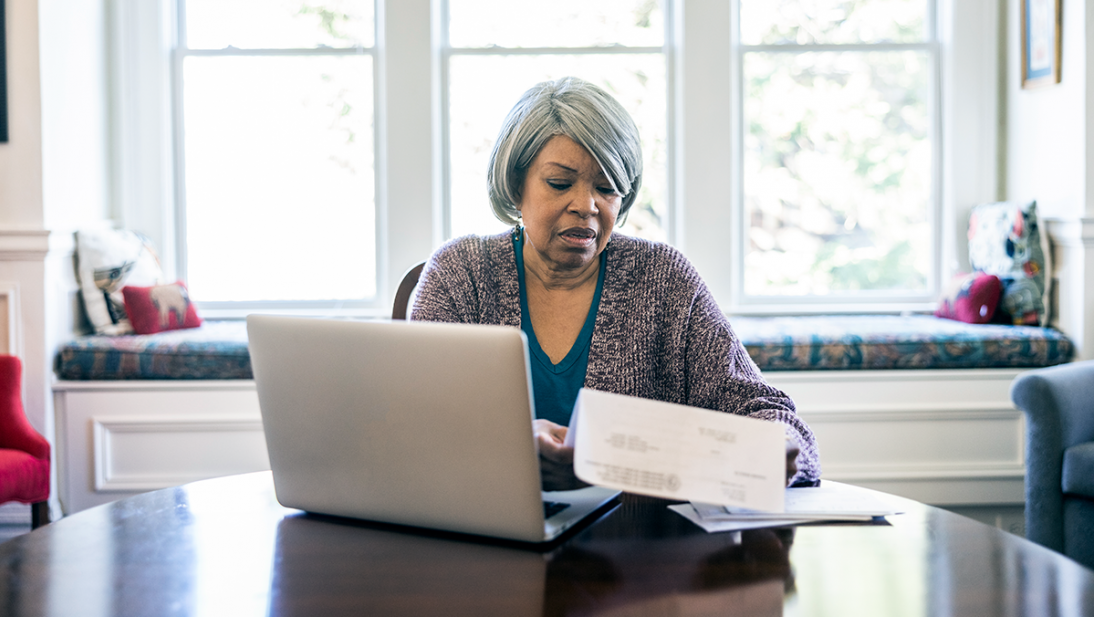For most people, exploiting the elderly is unthinkable. But for fraudsters, it’s big business. According to the FBI’s Internet Crime Complaint Center, in 2021, about 92,000 fraud victims in the US over the age of 60 reported total losses of $1.7 billion.
TD Bank Fraud Risk Manager Christopher Blackmore helps elderly people avoid financial exploitation and scams by leading TD Workshops in the Philadelphia area to teach people how to recognize the signs.

“Everyone benefits when we educate people about elder fraud,” Christopher said. "As technology advances, the key is to understand how each type of scam works to remain a step ahead of the bad actors."
What is elder fraud?
Elder fraud targets older adults, luring them with goods, services, or financial benefits that are misrepresented or fictitious. These scams often occur over the internet via smartphones and home computers, which can put the elderly population at higher risk. Phishing scams, which are fraudulent emails requesting sensitive information, are the biggest threat.
Americans overall lost an estimated $6.9 billion to cybercrime in 2021. As noted, anyone of any age can experience financial abuse. However, some people may be at greater risk of becoming the target of financial crimes than others. As people age, they may become bigger targets for financial abuse because they have built up their savings and property during their lives.
How to help protect yourself
To guard against fraud, use your bank’s resources.
“Many banks have good tools for consumers to stay on top of their financial life, but often seniors don’t utilize them because they either don’t know they exist or don’t know how to use them,” Christopher said. “The more we can empower people, the more everyone wins, including the banks.”
Be vigilant about what is shared about you on social media. Christopher said. “The ‘in’ thing to do is to have many friends on social media, but the more you open your life up to new connections, the more you’re potentially opening up to bad people well. You might not even have a social media page, but if your family posts photos of you with your grandchildren and their names, that becomes ammunition for the bad people. These kinds of posts expose you and your personal information."
Know that your bank should not ask you to disclose information such as passwords or PIN numbers, nor should they try to gain remote access to your device. Never trust callers who ask for personal information or money. Carefully inspect all bank correspondence for misspellings or other oddities, including URLs.
Fraudsters will often impersonate a friend or loved one. If in doubt, ask questions that only that person can answer. Ask yourself if the caller sounds and acts like the person you know. Avoid acting with urgency to requests for money, and always question it if an offer seems too good to be true.
Change your online passwords and check your credit report often. Use multi-factor authentication on accounts whenever possible. Utilize anti-virus software, spyware blockers, and secure connections whenever accessing sensitive information.
Though elder fraud is on the rise, protections and safeguards are available to help keep assets secure. With a little knowledge and thinking before acting, it’s possible to avoid the tragedy and heartbreak of losing money and falling victim to criminals. Utilize the tools at your financial institutions, stay informed and vigilant about risks, and when in doubt, seek the advice of a trusted friend or family member to help you stay safe.
For more on personal finance topics
If you have more questions about other personal finance topics that matter to you, visit the Learning Center on TD Bank’s website.
We hope you found this helpful. This article is based on information available in March 2023 and is subject to change. It is provided as a convenience and for general information purposes only. Our content is not intended to provide legal, tax, investment, or financial advice or to indicate that a particular TD Bank or third-party product or service is available or right for you.
For specific advice about your unique circumstances, consider talking with a qualified professional.
Links to third-party sites do not constitute an endorsement or an approval by TD Bank of any of the products, services or opinions of the corporation or organization or individual. TD Bank bears no responsibility for the accuracy, legality, or content of the external site or for that of subsequent links. Any third-party trademarks or service marks mentioned herein are the property of their respective owners. Contact the external site for answers to questions regarding its content. See our website Terms of Use for more information.
